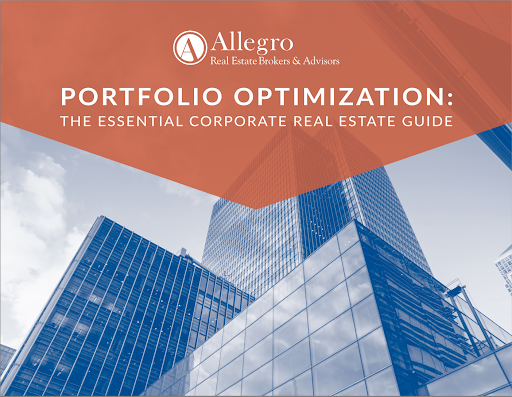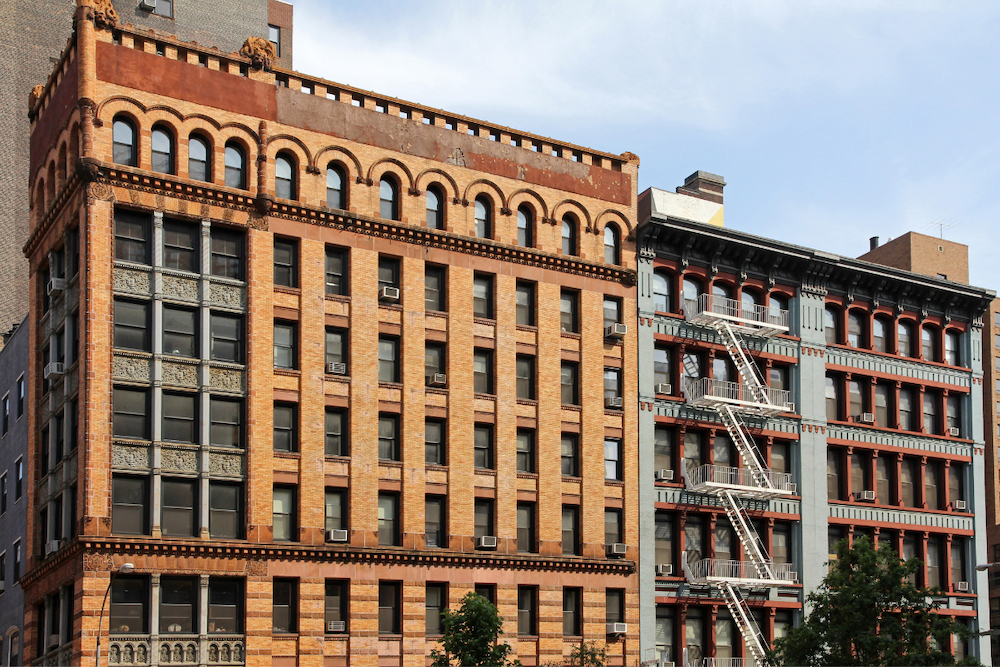Depending on where your office is located, there may be different advisories in place regarding returning to the physical workplace. But whenever your team is ready to get back, there are certain practices you’ll need to follow.
With news outlets reporting on safety guidelines every day, it can be hard to keep track of what your company versus building management is responsible for to ensure a safe workplace. To help you prepare for re-entry, we’ve rounded up the most essential practices to safely reopen the office and outlined who is typically responsible for what.
Increase the amount of cleaning and sanitation.
Your landlord’s property management should implement increased cleaning and sanitation. Talk with your landlord about what increased sanitation and cleaning measures they’re implementing throughout the building.
To ensure your employees are entering a safe workplace, record this information, and have it readily available for your team to review. The Center for Disease Control and Prevention’s (CDC) website has more information on recommended cleaning practices.
Specifically, offices are adopting reinvigorated cleaning procedures and are investing in new technologies. Here are some of the most effective and popular ways we’re seeing property managers sanitize their space:
- Increased cleaning cadence. Rather than the nightly cleaning crew, expect to see multiple cleaning crew shifts active in the building to ensure all common surfaces are clean.
- Air filter replacements. Replacing air filters is a simple way to help improve the overall air quality of a building.
- HVAC system enhancements or replacements. These improvements may come in the form of air filter replacements, ultraviolet light sanitation, and even replacements of entire HVAC systems. When properly utilized, UV lights can safely kill germs, mold, mildew, and even bacteria and viruses in the air. Health and wellness will likely continue as a focus for tenants in 2021 and beyond, and investments in these systems can reap long-term benefits.
- Smart access features. Touchless technologies help minimize the amount of contact on common area surfaces. Think app-controlled or voice-operated elevators and lobby doors. With the use of digital technology, landlords can minimize touching and help eliminate germ spread.
If you want to know what steps your landlord is taking to enhance cleaning or aren’t satisfied with the efforts they’re taking, speak with your real estate advisor to discuss ways to ask your landlord for increased safety measures.
Limit the use of common areas.
Once highly-trafficked common areas and amenities such as building conference rooms, fitness centers, on-site lounges, break rooms, and meditation areas should be available on a limited basis. This should fall on the responsibility of the landlord to limit the number of people in a given space. To enforce, management might place signage throughout the building to serve as reminders for social distancing or require tenants to reserve blocks of time for use.
In addition to ensuring distancing in common areas, landlords should be considering ways to implement proper distancing in areas like elevators and restrooms where it’s more difficult to distance.
Notify tenants of positive cases.
The Health Insurance Portability and Accountability Act (HIPAA) prohibits announcing specifics about who tested positive for COVID-19. Still, tenants have the right to know when there are positive cases in the building.
Ask your landlord what their plan is in the event that a positive case in the building is known. How you decide to convey that information to your employees is up to you, but whatever your policy is, be sure to communicate with your team in a timely fashion. There are certain things tenants can request be put into practice to further ensure building safety. Ask your landlord if they’re willing to implement temperature checks upon arrival into the building and have guests sign in at the front desk. These small changes can help with contact tracing in the event of a positive case.
Lastly, since the whole concept of identifying tenants of positive COVID-19 cases is new, there haven’t yet been legal provisions included in lease agreements. Moving forward, clauses that outline the process for handling health and safety might be more common in legal landlord/tenant agreements.
Provide personal protective equipment (PPE).
While your company or even the local governor may require employees to wear PPE throughout the day, this responsibility falls on both you and the landlord. While employees should provide their own mask or face covering in order to safely move throughout the building, it is up to both the tenant and the landlord to ensure PPE is properly being used, depending on where you are in the building.
For example, property management is responsible for enforcing proper PPE use while people walk throughout the common space of the building. However, inside the individual offices, the tenant is responsible for making sure their employees are following the rules.
In addition to more mask usage, you may also see more sanitizing stations available throughout the building. While many landlords are installing these stations themselves, they are not legally required. If you see an opportune spot for a sanitizing station, such as near elevators, stairwells, or other common areas, simply ask your landlord if there are plans to add one or consider installing one yourself for your employees to use.
Are you planning your re-entry strategy?
If you’re preparing to re-open your office space for employees, planning is key. While 2020 was certainly challenging, our team is eager to take on this year as we all strive to return to a sense of normalcy in the workplace. As you prepare to once again open your office doors, be sure to do your due diligence and welcome back employees safely.
For more information and tips on safely managing your office space, subscribe to our blog today.







